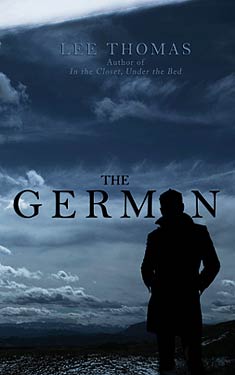Lee Thomas
Completed 9/30/2018,
Reviewed 9/30/2018
5 stars
What a
powerful book. This is the second book
of Thomas’ to win the Lambda Literary Award for SF/Fantasy/Horror. It's the tale of a serial killer. There's a little supernatural thrown in there as well. It mixes the
thriller with a coming of age story and a gay, apparently immortal German refugee in World War II
era Texas. It’s well-written, poignant,
and thrilling. I’m not much of a reader
of thrillers, so I’m not used to the emotional rollercoaster that these sorts
of books can put you on. This book had
me gripped from beginning to end. A few
of the thrillers I’ve read have lulls in them as the detective or PI tries to
put together the clues to try to solve the mystery. But I never felt like there was a lull in
this book. Even when the focus wasn’t on
the murders, it was interesting and emotionally charged.
In 1944, Tim
Randall lives in the small town of Barnard, TX.
It has a fairly large minority of Germans living there, many who just
recently emigrated there to escape the Nazis.
This sleepy town is awoken by the brutal murder of an older teen and the
evidence indicates it’s a Nazi sympathizing German resident. The note left by the murderer indicates this
is the third in a string of murders. Tim lives across the street from a German
immigrant, Ernst Lang. While the town becomes
suspect of all the Germans living there, a string of events leads Tim to
believe that Ernst is the murderer.
I liked the
form of the book. It’s written from
three perspectives: first person from
Tim’s point of view, first person from the journal of Ernst, and third person from
the sheriff’s point of view. The plot
unfolds through the interweaving of the three different narratives.
Tim is
twelve years old. Summer has just begun. He spends the days with his best friend Bum
(his real name) trying to escape the heat.
His father is in France in the war and his mother works an evening shift
at the factory to support the family.
Through an act of kindness on Ernst’s part, Tim befriends him, despite the
public opinion that the young people should stay away from the Germans in case
one of them is the murderer.
Ernst is the
German. He seems to have survived being executed in Germany, having died but finding himself outside his grave, then escaping to America. Ernst is gay. He keeps to himself, but makes no bones about
it if asked directly. He has a dark past
from his days before emigrating, but generally lives a quiet life making
rocking chairs and selling them at a local store, and having quiet liaisons
with the closeted men in the community.
Tom Rabbit
is the sheriff investigating the murder.
He struggles to stay sane and focused while the whole town goes crazy over
the events that are unfolding. A second
boy is found murdered, and a third goes missing.
This book is
about racism and scapegoating. It may be
about the Germans, but it also is representative of all the racism and
scapegoating that comes with war, like that of the Japanese and now the Muslim
communities. It’s also about homophobia,
and the atrocities that come from that as well.
And being 1944, homophobia is cast in stone by sodomy laws and the medical
community. It’s a time of intolerance,
fear, and misplaced patriotism. From
many angles, it’s not much different than today.
“The German”
is equally exciting and poignant. I
liked the way story unfolded through the three narratives. Most specifically, I enjoyed reading the
sections from Ernst’s journal. We get to
see a slice of life living as a gay man in a tough time and place. We find out about Ernst’s life in Germany during
the rise of Hitler. I was also really caught
up in the mystery, not figuring out who the murderer was until near the
end. The good thing though was that it
was not a police procedural. It was more
about the psychological effects on the townspeople, as experienced by Tim,
Ernst, and the Sheriff. I give this book
five stars out of five because I read this book in a day. I simply couldn’t put it down. It’s about the most engrossed I’ve been in a
book for a long time. It had a strong
emotional impact on me, mostly because of Ernst’s journal entries, and that’s
what pushed it up from a simple four star book to a five star experience.

No comments:
Post a Comment